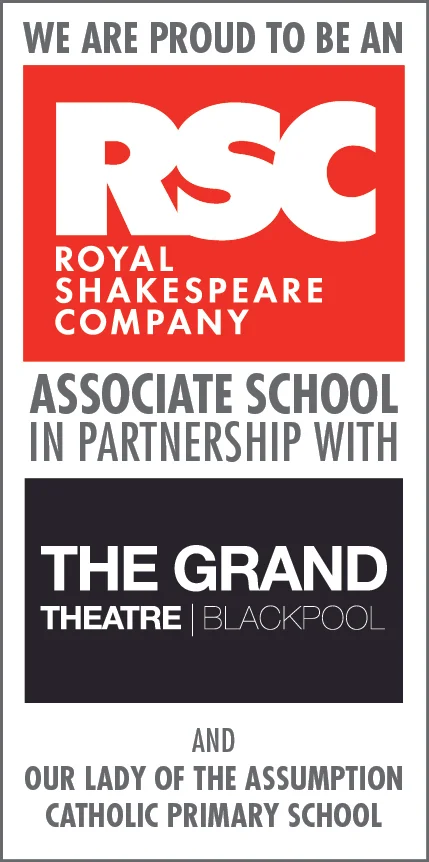Our Lady of the Assumption RSC Associate School
Teaching Shakespeare makes children better learners
Below is a recent article from The Telegraph talking about the impact of the project:
Shakespeare gives children as young as three a confidence boost, the Royal Shakespeare Company’s director of education has said.
Exposing pupils from disadvantaged backgrounds to complex language allows them to become as eloquent as their privately educated peers, according to Jacqui O’Hanlon.
She said explained that teaching children Shakespeare from a young age “narrows the gap” between those from disadvantaged families and those from better-off households.
"No age is too young to start learning about the Bard", she said, adding that some schools begin teaching toddlers who are still in nursery.
“They are learning new words all the time, every day. Shakespeare is just a new set of really gorgeous, delicious intriguing words,” Ms O’Hanlon told The Sunday Telegraph.
“You ignite a curiosity about language. And that is a fantastic skillset, particularly for people from disadvantaged backgrounds.
“It narrows the gap. If you go to an independent school what you will be surrounded by is a group of young people who are utterly confident in communication. That confidence and communication is what Shakespeare opens the door to.”
The RSC has supported the teaching of Shakespeare in with over 100 schools around the country for over a decade, encouraging “rehearsal room” techniques such as reading the plays aloud and acting them out.
Ms O’Hanlon has long suspected that the ramifications that learning Shakespeare has for disadvantaged children are far reaching.
Now she feels that the benefits of Shakespeare are indisputable after seeing the results of a piece of research by Warwick University.
The study, commissioned by the RSC, was a series of interviews with teachers at around 100 schools where Shakespeare is taught to disadvantaged children using the rehearsal room method, either at primary or secondary school.
“What we wanted to do was to find out from a range of teachers what Shakespeare enabled for their students,” Ms O’Hanlon said.
“Anecdotally we kept getting this very powerful testimony about the dramatic impact that Shakespearean language had on a child’s confidence, on their communication skills and on their language development, both spoken and written.”
Researchers found that 95 per cent teachers said students were more willing to contribute ideas and opinions in lessons.
The same proportion said that learning Shakespeare impacts on children’s self- confidence, and over 80 per cent said that disengaged boys particularly benefited.
A further 83.9 per cent of teachers said the work had a positive impact on students’ spoken and written language.
Ms O'Hanlon said anyone who claims that children from difficult backgrounds will not understand or will not relate to Shakespeare is being “enormously patronising”.
“What we see is access to Shakespeare really boosts children language skills,” she said.
“It is complex, difficult and if we give children the tools to unlock the complexity and access the rich beautiful work they feel very diff about themselves.
“Teachers say it really extends their horizons and raises aspirations.”
Why Learning Shakespeare And Active Learning Helps
“An actor once described the rehearsal room to be a ‘place of possibilities.’ I think that’s also a wonderful description to apply to a classroom and it’s what we hope to create with our associate schools.”
Active learning strategies and rehearsal room techniques – helping make learning stick
The practical approaches that theatres use to explore plays can be used very effectively to deepen children’s learning. These approaches allow the children to develop a greater understanding, explore their ideas and be confident to use them in their learning. Through these practical approaches the children develop a deeper understanding and a confidence to apply their understanding to their work. We are a Lead Associate School for The RSC and are working with other local schools to develop these strategies and the teaching of Shakespeare to children. The exploration of Shakespeare’s plays and language can greatly enhance the cultural capital that we provide for our learners. Please explore the RSC learning zone to start your journey.
Time to Act: Evaluating the Impact of Royal Shakespeare Company Pedagogy on Literacy and Academic Self-Concept in Primary Schools has been reviewed and approved by the RSC Research Ethics Panel.









